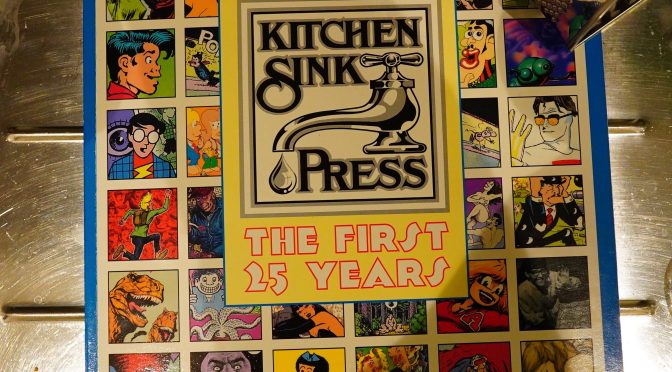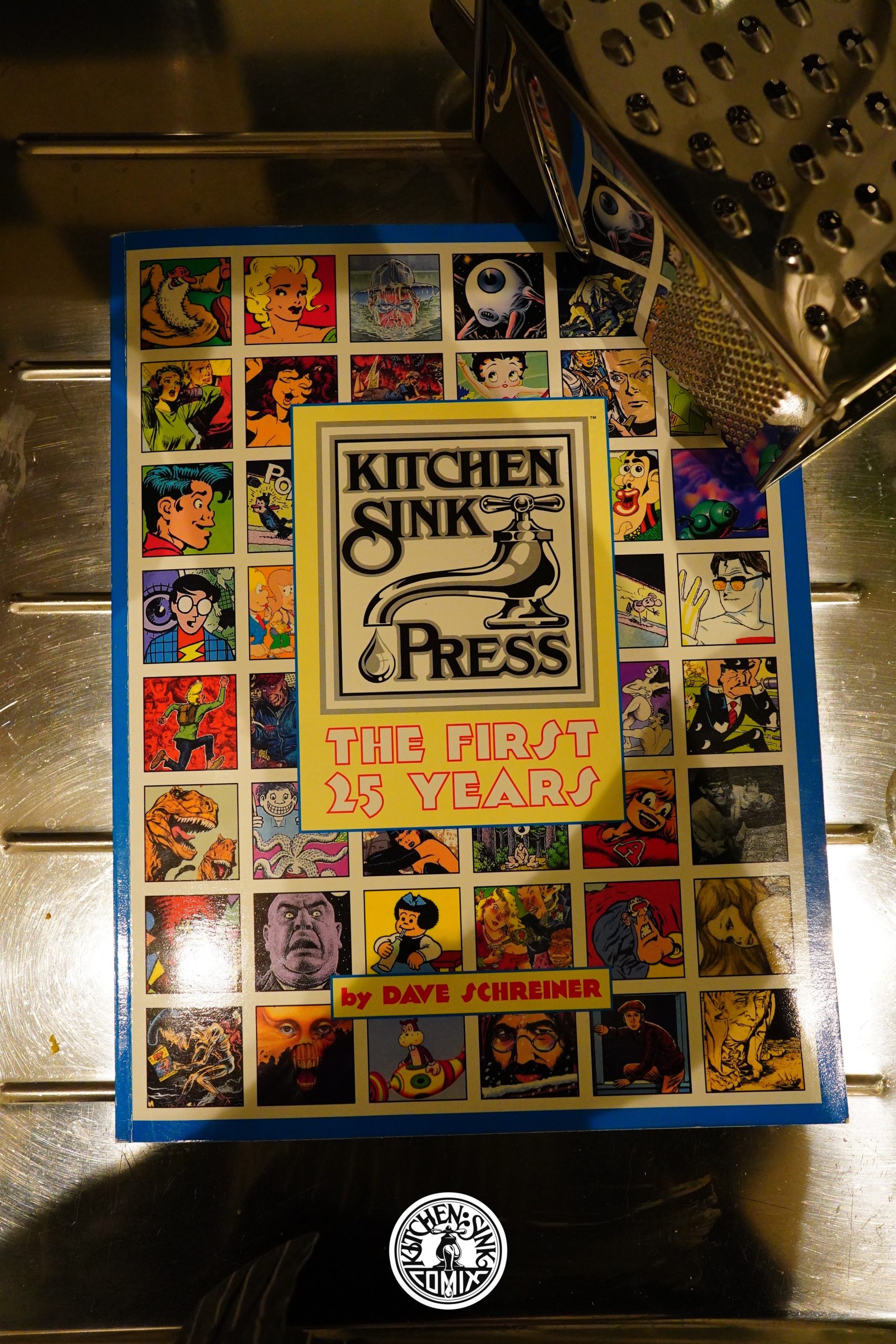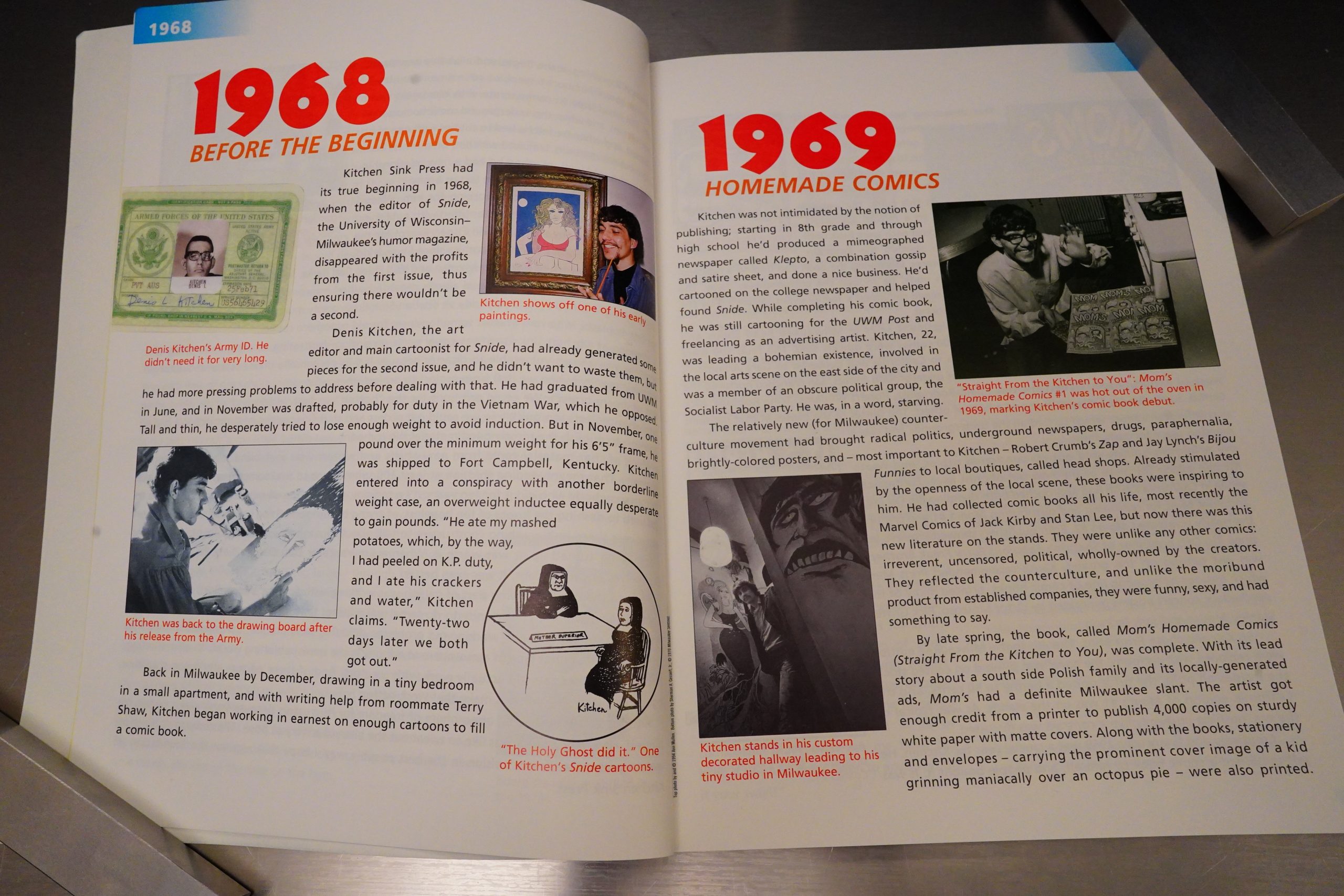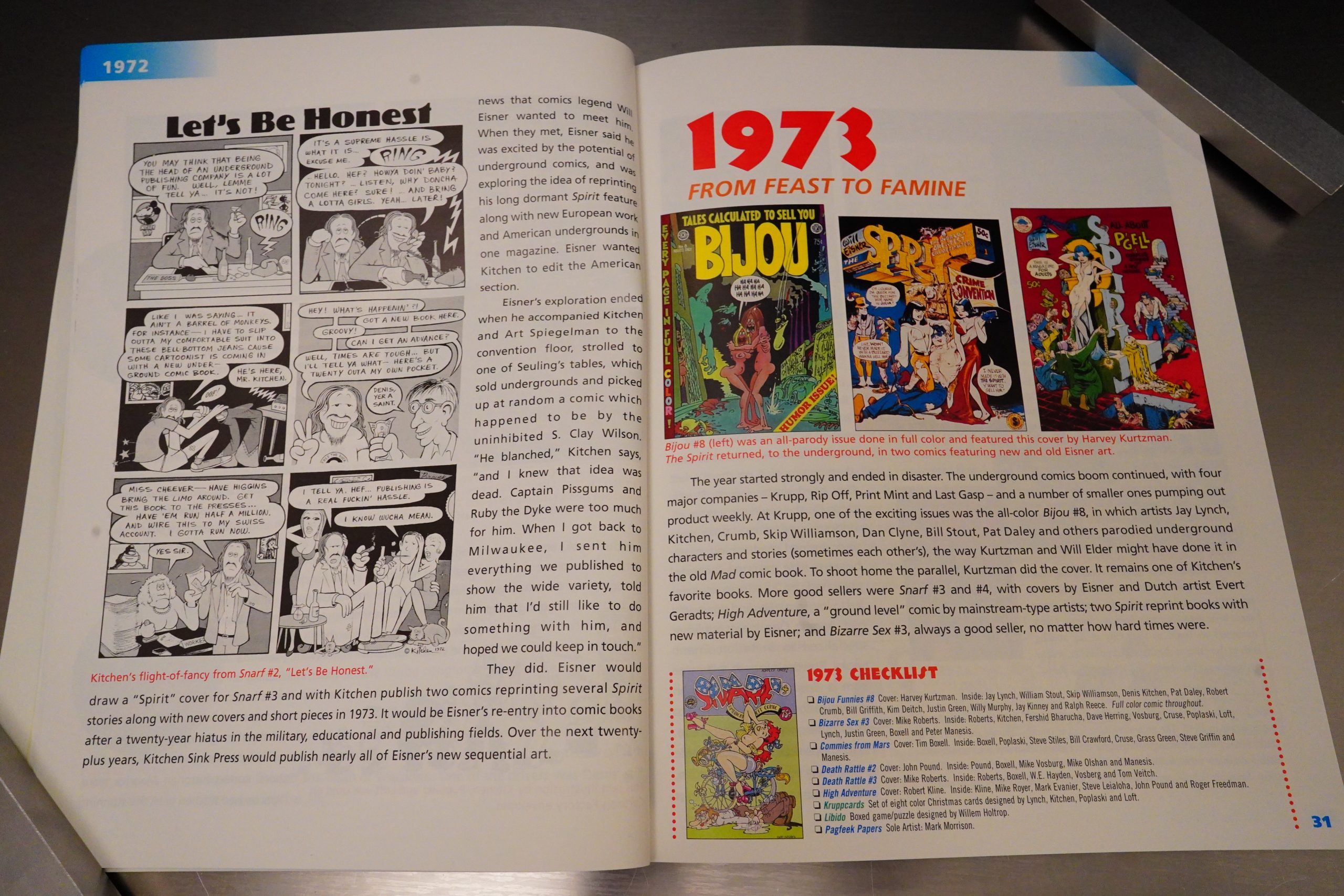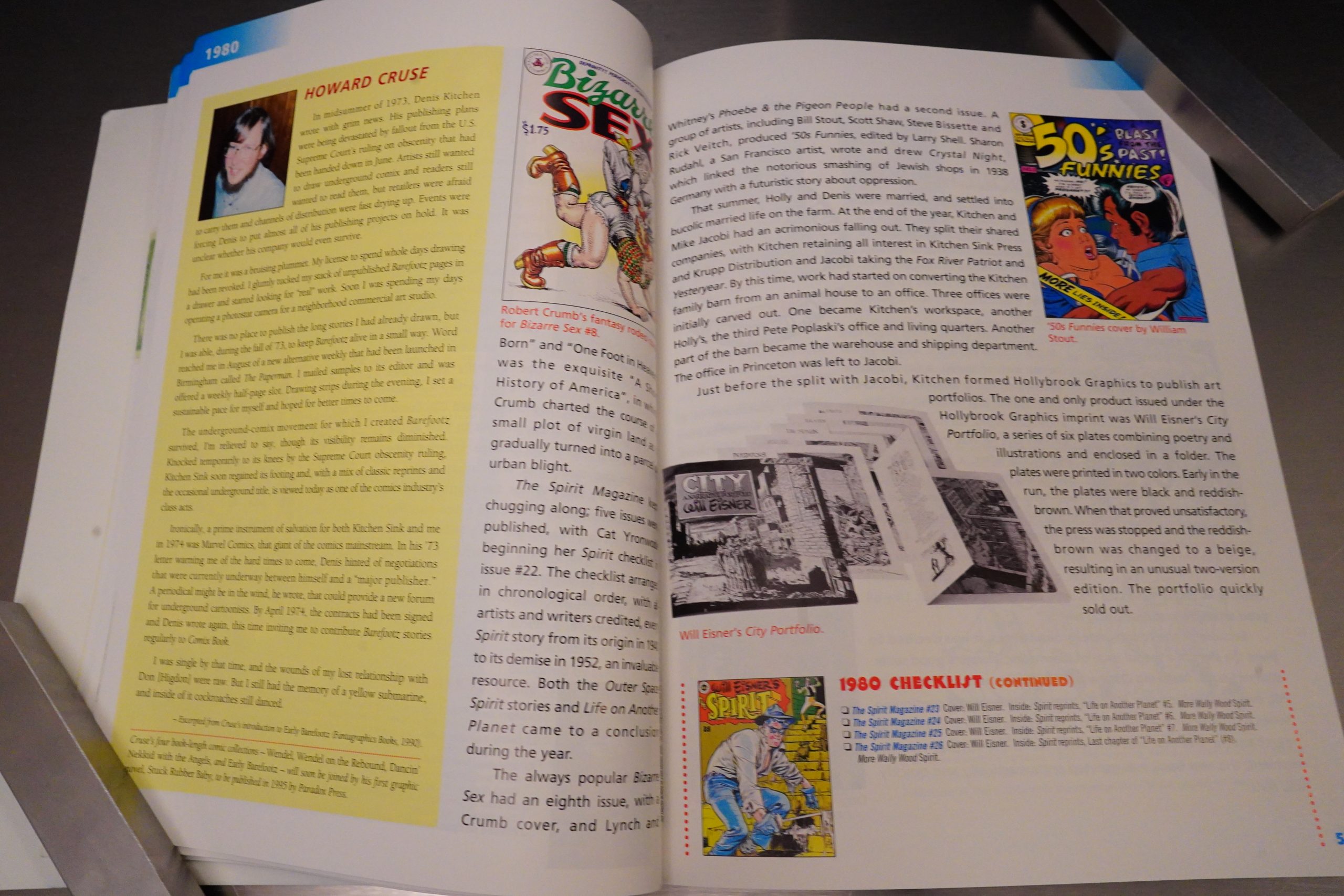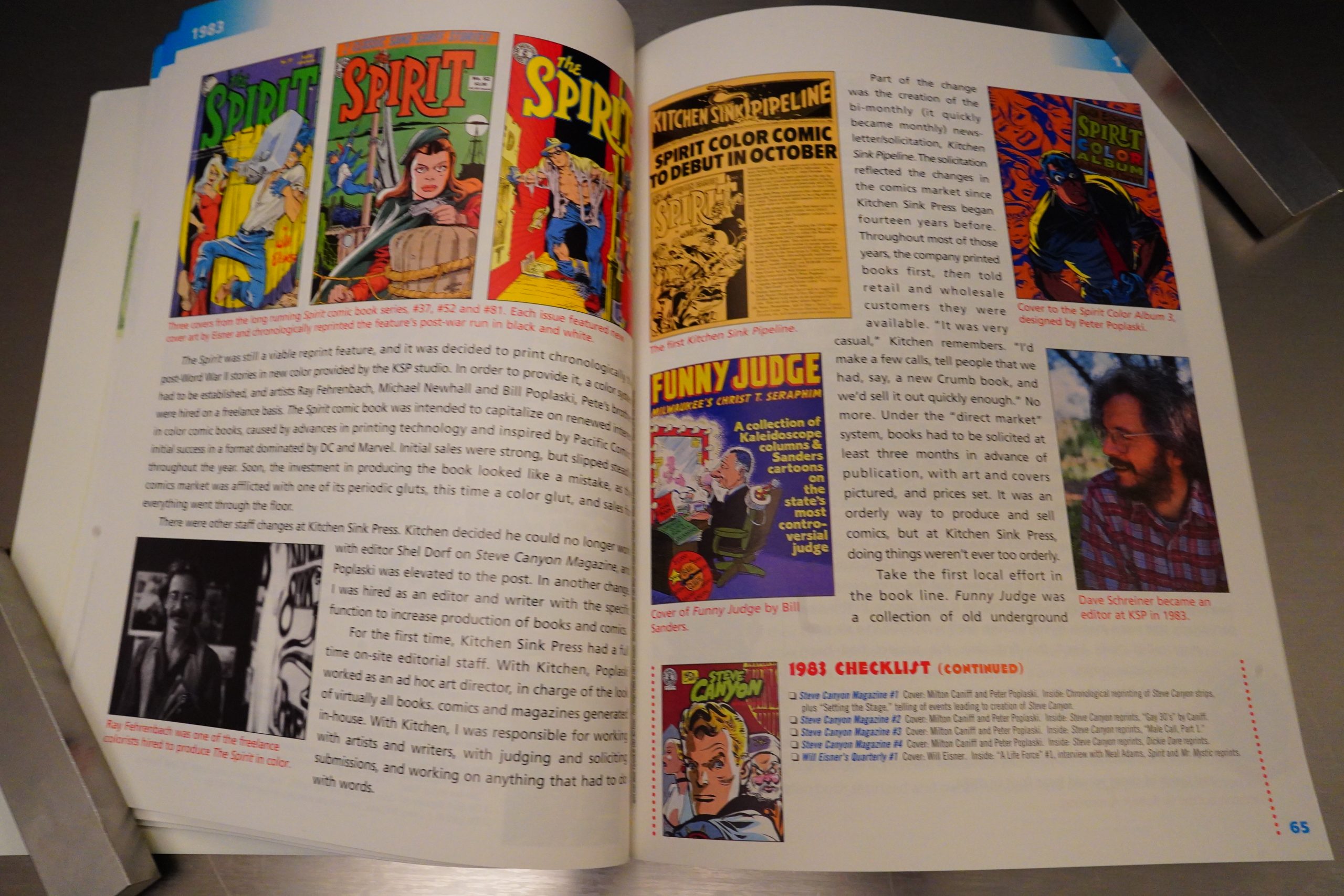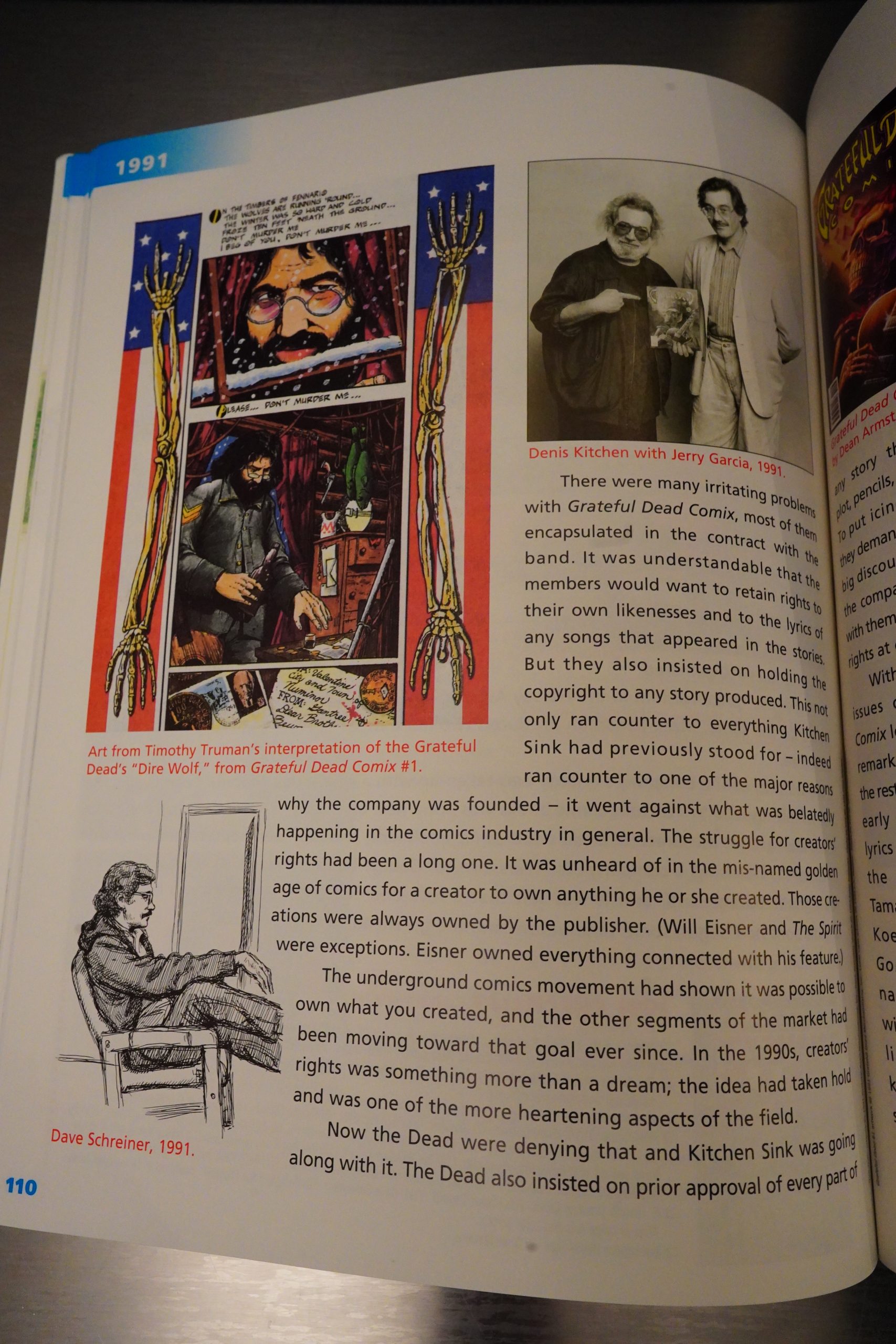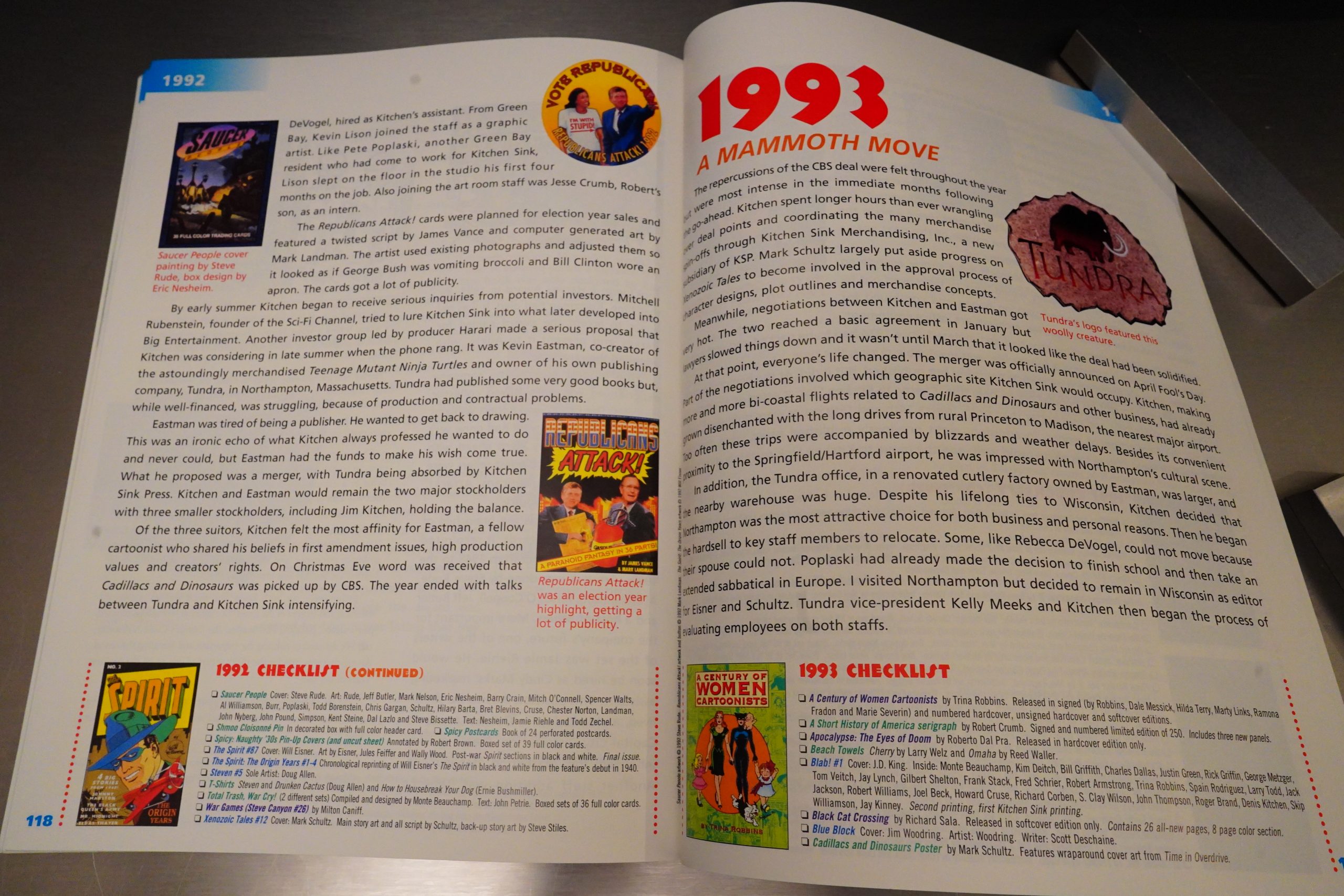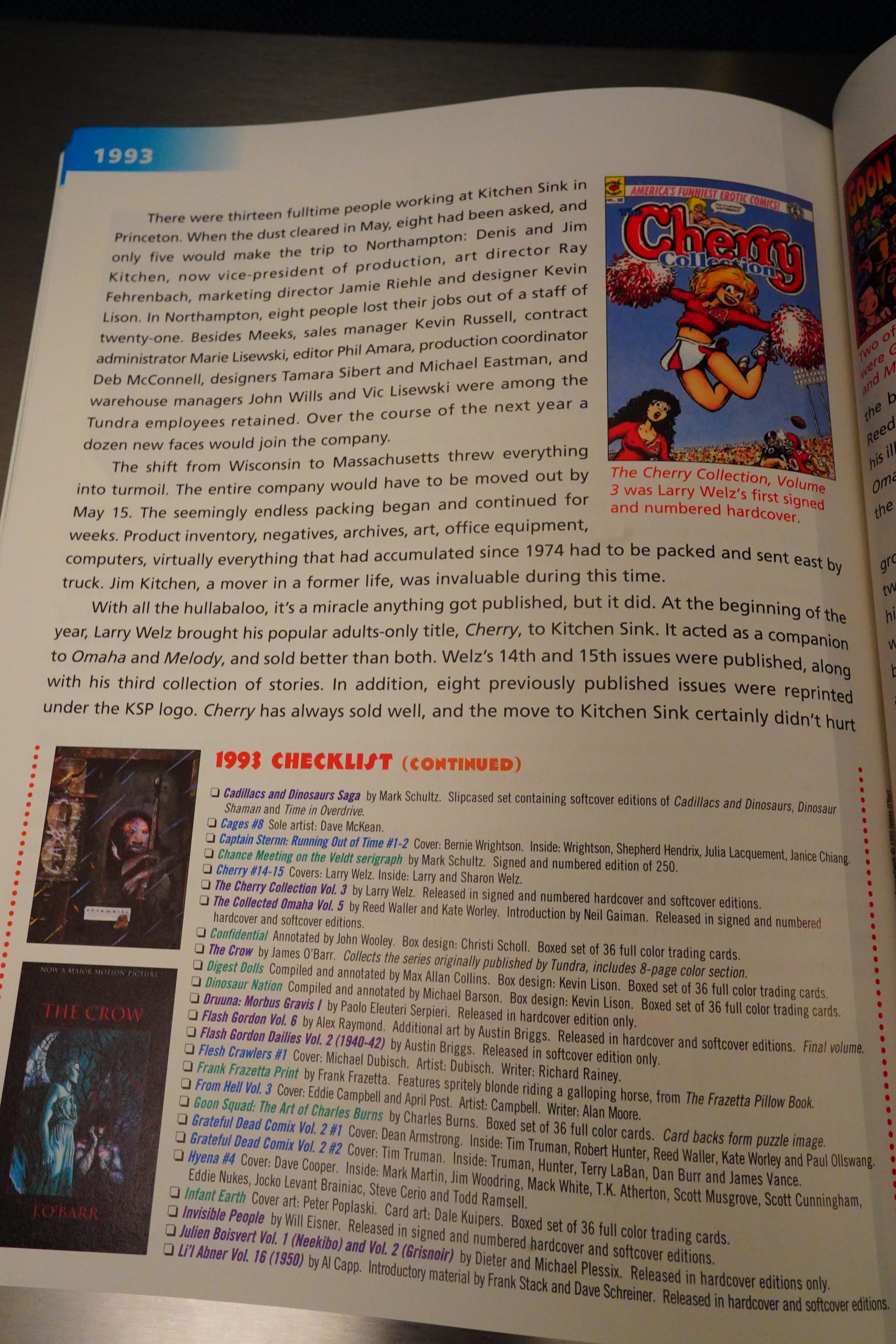Kitchen Sink Press: The First 25 Years (1994) by Dave Schreiner
It makes sense to publish a retrospective after publishing for 25 years — it’s a major landmark, especially since most comics publishers go under way before that.
But… by 1994, did Kitchen Sink really exist any more? It’s a deep ontological question that’s plagued philosophers for decades!
It’s a very forthright book, and with interesting insights into what was going on. In addition to the checklist that lists all their publications, Schreiner also writes a bit about what sold and what didn’t sell, and is definitely more interested in writing about the business aspect of Kitchen Sink than the artistic achievements of what they were publishing.
We also get capsule interviews with prominent creators, and they’re often pretty amusing.
And we also get told who was hired and who left and so on. Very behind-the-scenes, which makes me wonder who Schreiner was writing this for. I mean, I’m interested in all that stuff, but it’s hard to see many people plonking down their $12 for this.
Did I mention that Schreiner was forthright? He doesn’t shy away from (mildly) slagging people like the Grateful Dead for being asshats.
But of course, the elephant in the room was that Kevin Eastman had bought Kitchen Sink so that Denis Kitchen could take over running Tundra. This was officially phrased as “Kitchen Sink buys Tundra”. Schreiner chooses to take a more diplomatic tack, and lie a bit less, by calling it a “merger”.
So Denis Kitchen moved to Tundra’s headquarters, and less than half of the Kitchen Sink staff made the journey with him. Schreiner was one of the people who left the company at this time.
Kitchen’s deal with Eastman was that Eastman would subsidise Kitchen Sink’s publishing to the tune of $2M over 1993/94… and I’m wondering whether a book like this was the result of this largesse.
You can still buy copies of this from Denis Kitchen:
The incisive and often blunt text and introduction is by KSP’s longstanding editor-in-chief Dave Schreiner.
Yup. It’s pretty blunt at times.
Gary Groth writes in The Comics Journal #140, page 9:
When good work becomes virtually un-
saleable, even the best publishers feel less in-
clined to take chances and publish first-time art-
ists and unknowns, however fresh, promising,
or vital they may be. Kitchen Sink Press’ de-
moralizing publishing schedule from September
1990 through March 1991 is proof that even an
established alternative publisher can’t afford to
take any chances in such an economically pre-
carious climate.
Kitchen Sink Press is known for its discrim-
inating editorial judgement and consistent quali-
ty in design and packaging. A 7-month survey
from September 1990 through March 1991
shows that Kitchen Sink solicited for the follow-
ing books, categorized as follows:
Reprint Collections (e.g., Li’l Abner, Nancy): 9
• Contemporary reprint collections (e.g. ,
Omaha): 3
Reprinted comics (e.g., Spirit): 9
• Merchandise (ties, candy bars, tin signs, pstcards,
etc.): approximately 25
Marvel tie-ins: 6-issue Cadillacs and Dinosaurs
series
DC tie-ins: 3-volume Bannan collections
• Books distributed by KSP, published by Other
publishers: 8
• New work by contemporary cartoonists (e.g.,
Melody. Owlhoors): 8
O. K. , out of approximately 70 products, only
11
are by contemporary cartoonists; of these
three are reprint volumes, and two are The
World’s H6rsr Comics Awards, one of those
cutesy Turkey Awards-type series that affec-
tionately pokes fun at. while reveling in the most
pronounced idiocies of, past mainstream com-
ics. Kitchen Sink has always been a cautious
publisher whose line has consistently solid
but rarely daring. Nonetheless, the last seven
months or more represents a line that is creative-
ly uninspired, even timid. But, it’s hard to blame
Kitchen Sink; when the company did stick its
neck out, it got chopped Off. Orders were so
abominable on two Kitchen Sink titles solicited
over the summer that the company put them on
“hiatus,” and has yet to reschedule them. Ac-
cording to a Kitchen Sink press release, “Be-
cause of low orders placed by comic shop
retailers, Kitchen Sink Press announced that
of its recently-solicited titles have been placed
on hiatus.
The two books were Snarf#16 and Of Cows,
Crows and Armadillos… , the latter a collection
Of art by the illustrator F.G. Cooper with an in-
troduction by Harvey Kurtzman. The press re-
lease goes on rather resignedly: “It seems to
us that the phenomenal orders for Spider-Man
have sucked retailer dollars out of the market
for Other products. Snaff is a break-even pro-
position for us in the best of times—it is dif-
ficult to sell any kind of anthology title. And
we realized going in that Cows, Crows and Ar-
madillos… was not going to be a comics market
sensation. But we frankly expected better orders
While presold concepts continue to thrive.
than what we got. We are still committed to
these books, and will resolicit them later, after
this Spider-Man foolishness dies down.”
Well, I hope Kitchen doesn’t hold his breath
because it wasn’t the “Spider-Man foolishness”
that caused the abysmal sales of his two books,
but the ongoing commercialization of the market
that threatens to displace everything that doesn’t
fit into a prefabricated mold, of which Spider-
Man is only a symptom. If Kitchen believes the
market will be more receptive to these books
at some future date, and blames their poor sales
on temporary phenomena such as Spider-Man
#1, I think he’s sadly mistaken; the comics
market’s idea of “growth” and ‘diversification”
do not include expensive trade paperbacks by
exceptional but obscure illustrators.
OK, that wasn’t really er very relevant for this blog post, but I just stumbled upon it while searching for reviews of this book, and I thought it painted an interesting picture of Kitchen Sink’s pre-Tundra days.
This is the one hundred and sixty-sixth post in the Entire Kitchen Sink blog series.
